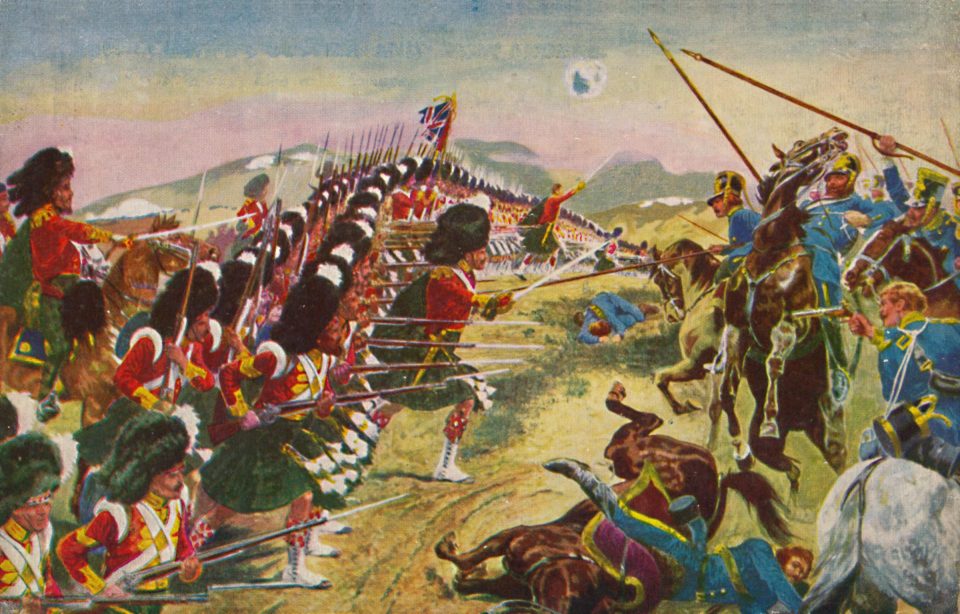IS it not time the regular invasion into our daily life of historical “woke” issues was brought to a halt (“Eight city statues singled out for links to slave trade, report reveals”, The Herald, March 29)?
The statues of Sir John Moore and Sir Colin Campbell in Glasgow were erected because of their valour in the British Army. As every schoolboy of my generation knows, Moore died at Corunna with “his martial cloak around him” and Campbell was accredited with forming the “thin red line” at Balaclava.
The fact that both these men were obeying orders when at some point in their military careers they were involved in what is now recognised as a wholly indefensible situation regarding the then British attitude to slavery cannot now in 2022 be held against them. If they had refused to obey any Army order or were even seen to break from the practice of the time, they would have never made their high ranks.
The likelihood of displaying valiant command and then getting recognition with a statue in George Square would not have existed.
Is it fair to punish someone for obeying orders and being like everyone else of that time?
Bill Brown, Milngavie.
SHAMEFUL RECORD ON JEWS FLEEING NAZIS
NEIL Mackay has it spot on when he argues that the British Government’s response to Ukranian refugees is a hypocritical disgrace (“Tories shame us with homes for Ukraine con. SNP must act”, The Herald, March 29). The shocking thing is how much it resembles government policy towards Jews fleeing Nazi tyranny in the 1930s.
At that time, the Government, conscious of the fact that it wanted Britain to look good on the international stage and aware of public sympathy for German and European Jewry under persecution, attempted to project a caring image whilst terrified of giving, as it saw it, a “green light” to refugees to come here. Britain did allow the Kindertransport, although the children had to be sponsored so that they would not be a “burden”, but also sent back Jews who did not have the correct paperwork to Germany, where it was Nazi government policy to send returnees to concentration camps.
The British Government’s own figures are quite startling: 484 sent back in 1933, 378 in 1934, 365 in 1935, 412 in 1936, 438 in 1937, 489 in 1938 and 191 in the first six months of 1939. When a small number of Jews fled by air to Britain after the Germans occupied the autonomous city of Memel in March 1939, those without the necessary papers were put on the next plane back to Europe. The signals given out were clearly designed to discourage Jews from fleeing west, presumably because they had fled Nazi terror without either enough money or time to get the proper papers.
The British Cabinet secretly outlined its policy as being to try to get Jews “eminent in science, technology, art, music etc”. The test for admission was to be “whether or not the applicant is likely to be an asset to the UK”. Unsuitable candidates were “persons likely to seek employment, agents and middlemen, minor musicians, commercial artists, the rank and file of doctors, lawyers, dentists”. The British Government held to its secret position all during the 1930s – claims of sympathy for refugees, whilst making it as hard as possible to get here.
The British Government, in true hypocritical fashion, and in collusion with other western governments, said one thing publicly and organised another secretly. Indeed, by July 1939, the Foreign Office was questioning the status of fleeing Jews as refugees. One high official claimed that “a great many … are not in any sense political refugees … many are quite unsuitable as emigrants and would be a very difficult problem if brought here.” This, as Nazi terror towards Jews intensified.
What is thoroughly depressing is how similar British Government policy now is to the 1930s. An absolute disgrace.
Henry Maitles, University of the West of Scotland Emeritus Professor, Glasgow.
CRACKING UP OVER MODERN ART
I NOTED your photograph of a “piece of art” on display at the Talbot Rice Gallery in Edinburgh which is displaying a showcase new Scottish talent (“Around the UK”, The Herald, March 29). Can somebody please explain why it is talented to me? Looks like part of a demolished building. I’m just away to find a hammer and make my fortune.
Michael Watson, Glasgow.
HELPING THE DOZY SEE SENSE
I AM encouraged by the news that a wee sleep may boost children’s reading skills (“Daytime naps could be key to boosting children’s reading skills, study finds”, The Herald, March 29).
Now in my twilight years, perhaps my forty winks may help in making sense of what’s going on in the world, although so far it’s been delayed.
R Russell Smith, Largs.
BE CAREFUL WHAT YOU DO IN BED
A RECENT study commissioned by the North London Waste Authority has suggested that we could reduce the number (seven million) of mattresses thrown out in the UK every year by more than 40 per cent if people were to break their “bedroom habits”. They include “regularly allowing a pet to sleep in bed”, “smoking in bed” and “eating in bed”; all contribute to the wear and tear of mattresses leading to premature disposal.
The councillor who is chair of the authority is quoted as saying “we can help reduce this significant environmental impact if we make better choices”. He doesn’t go into further detail. Intriguing.
John F Crawford, Lytham.
WAGES COUNSEL
THE letter by David Clark on prices in years gone by follows that of DH Telford on the ending of slavery (both March 28).
As an apprentice accountant in the 1950s, I was paid £2 per month. After qualifying, I paid my first shorthand typist (no secretaries in those days) £7 per week.
Was I both a slave and a slave driver?
David Miller, Milngavie.


